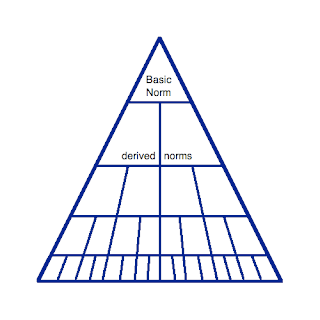This was the title of the centerpiece in the Times of India today, Apr 09, 2013. The piece is written by Deepak Chopra and Jim Clifton, senior scientist and CEO respectively of the Gallup Organization and presents a brilliant and unique perspective of the "sentiment" in the Indian economy today.
I had noticed that piece by CNNs Fareed Zakaria too, where he reviewed the performance of the developing economies in the BRICS grouping, stating that India had turned out to be the biggest disappointment in this group and that it was likely to be replaced by Indonesia.
Analyzing the problem, Chopra and Clifton arrive at the worst kept secret and root cause of India's poor performance - a staggering 33% of its employees were "actively disengaged", meaning not only are they miserable at work, but they walk the halls and petition their colleagues to be as miserable and discontented as they are. Only a miniscule 9% of employees are "actively engaged".
Chopra and Clifton go on to argue that the workplace tends to be symptomatic of society as a whole, and that the picture here was just as gloomy, that India's state of mind was severely troubled.
The outcome - when any society reaches a low point of well-being with a sizeable number of people suffering, it is in trouble and the social turmoil can boil over into the streets at the slightest of triggers as was witnessed in the aftermath of the infamous Delhi rape incident in December 2012.
This human side needs a deeper examination, the authors say, referring to it as a crisis of soul. A nation's soul is the sum total of all interactions between all people in that society. Every moment lasting a few seconds is positive, negative or neutral. In those moments, people may arrive at conclusions or take very tiny decisions that, as it accumulates, can profoundly change their day and even the rest of their life.
I believe this is what is happening to our people. There is systemic failure of government and governance. The political class has fallen into complete disrepute and the country is on the slow boil.
Are we reaching a point of inflexion, a tipping point for dramatic and transformative change?
Transformative change requires a different type of leadership. And community leadership is not the leadership of one individual. It needs to be driven by the community. The elected leadership element will only be the mechanism, a "lightening conductor", through which the will of the community is discharged.
Of course, this argument turns the whole of the present dispensation on its head!
I had noticed that piece by CNNs Fareed Zakaria too, where he reviewed the performance of the developing economies in the BRICS grouping, stating that India had turned out to be the biggest disappointment in this group and that it was likely to be replaced by Indonesia.
Analyzing the problem, Chopra and Clifton arrive at the worst kept secret and root cause of India's poor performance - a staggering 33% of its employees were "actively disengaged", meaning not only are they miserable at work, but they walk the halls and petition their colleagues to be as miserable and discontented as they are. Only a miniscule 9% of employees are "actively engaged".
Chopra and Clifton go on to argue that the workplace tends to be symptomatic of society as a whole, and that the picture here was just as gloomy, that India's state of mind was severely troubled.
The outcome - when any society reaches a low point of well-being with a sizeable number of people suffering, it is in trouble and the social turmoil can boil over into the streets at the slightest of triggers as was witnessed in the aftermath of the infamous Delhi rape incident in December 2012.
This human side needs a deeper examination, the authors say, referring to it as a crisis of soul. A nation's soul is the sum total of all interactions between all people in that society. Every moment lasting a few seconds is positive, negative or neutral. In those moments, people may arrive at conclusions or take very tiny decisions that, as it accumulates, can profoundly change their day and even the rest of their life.
Boiling Frog Anecdote
It is said that if you put a frog into boiling water, it will immediately jump out of that vessel. But if you were to put the same frog in tap water and gradually bring it to boil, it will not perceive danger and will just sit there until it is cooked to death.I believe this is what is happening to our people. There is systemic failure of government and governance. The political class has fallen into complete disrepute and the country is on the slow boil.
Are we reaching a point of inflexion, a tipping point for dramatic and transformative change?
Transformative change requires a different type of leadership. And community leadership is not the leadership of one individual. It needs to be driven by the community. The elected leadership element will only be the mechanism, a "lightening conductor", through which the will of the community is discharged.
Of course, this argument turns the whole of the present dispensation on its head!







